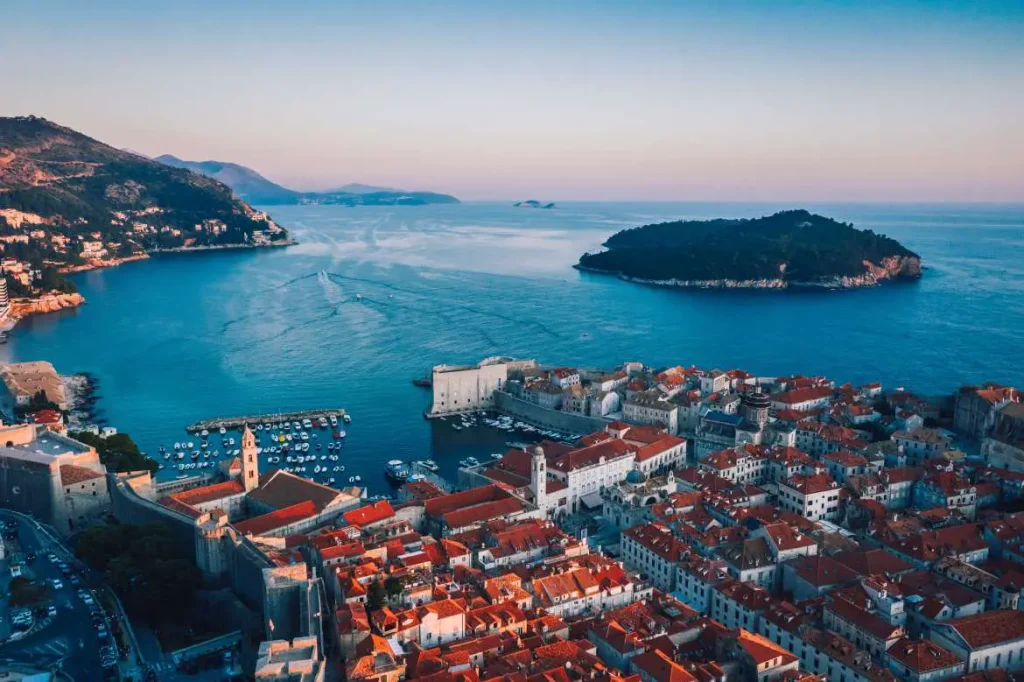May the 9th, 2023 – A new Croatian tourist season is upon us, and with the height of the summer season rapidly approaching, old problems which have plagued the sector for a long time are more than likely set to cause the exact same issues.
As Poslovni Dnevnik writes, announcements and expectations for the dawn of yet another new Croatian tourist season are naturally (and traditionally) mostly revolving around record results. Based on the bookings and expressed agency interest, it’s being assumed that this Croatian tourist season could surpass the figures seen back during the pre-pandemic year of 2019.
However, the focus on mass visitation and profit maximisation automatically excludes some other aspects of tourism planning. First of all, these relate to terms of ecology, transport and communal infrastructure, not to mention pressing social issues. All of that was still being talked about four years ago, but today it seems to have been more or less forgotten, writes Deutsche Welle (DW).
At the same time, we aren’t talking about a shift taking place exclusively here in Croatia, nor are we only focusing on the tourism sector. A similar trend has also been recorded in agriculture, energy, transport, etc. The former specter of climate change and the damage being caused by pollution has fallen into the background, while the industry is now focused on another source of anxiety, the one concerning the loss of the market competitiveness of national economies.
However, in the case of Croatia and the upcoming Croatian tourist season, there’s an undeniable link with ecology – if this country’s manner of handling tourism continues to threaten the ecological basis and the sustainability of tourism, which today undoubtedly represents its main economic branch, it will be threatened.
“The post-pandemic recovery of tourism will certainly have its dark side in the form of renewed pressure on the environment and nature,” Hrvoje Radovanovic, the head of the nature protection programme of Green Action/Zelena Akcija, stated. He believes that, although certain efforts are being made to “green” Croatian tourism up a little, among other things at the instigation of the tourists themselves who are becoming more and more environmentally conscious, one strategic problem persists: The main tendencies in planning the development of this sector are still primarily focused on attracting greater numbers of tourists, the extension of the season, and the tourism development of the parts of the country that tourists have mostly bypassed so far, etc.
Radovanovic pointed out that the infrastructure in many places across Croatia, especially those along the coast, is already unable to keep up with such a large number of tourists, as evidenced by last year’s water supply problems in parts of Istria and elsewhere. “Thanks to climate change,” he added, “it’s to be expected that such situations will only increase in the future. A growing problem from the aspect of environmental protection is also the disposal of waste and wastewater produced by an increasing number of tourists, and there’s also the destruction of the ecosystem thanks to concreting, apartment building and the construction of other tourist infrastructure”.
Protected areas haven’t been spared from this either, unfortunately.
“Even if it turns out that the planned measures and investments for ”greening tourism up” represent something more than so-called greenwashing, and if they really do succeed in reducing the pressure on the environment, the total environmental pressure of this sector will continue to grow as long as the unlimited growth of the number of visitors and overnight stays remain the main goals of tourism development,” believes Radovanovic.
Unfortunately, on top of all that, the controversial issues don’t solely regard environmental and communal ones, but also those related to work in tourism itself.
According to estimates from the sector, this country is currently lacking about 60,000 workers to take up employment as waiters, chefs, bar staff and so on. Croatian employers, with the exception of the more stable ones such as larger hoteliers, still aren’t offering their staff adequate salaries, meaning that they continally fail to retain employees who have worked for them back during previous Croatian tourist seasons.
It’s already fairly well known that because of this, Croats have been emigrating to the northwest of the EU in large numbers for years now, while workers from Central and East Asia are being invited to come and work Croatia, and the deeply concerning part of the whole saga is that these individuals from third countries are more than ready to work (and work hard) for significantly lower wages. On top of that, the problem of their professional qualifications and the maintenance of service standards arises, all because of the crowning priority of the owners of tourist facilities – profit above all else.
“Croatia’s ongoing labour shortage issue is particularly pronounced this year. While it’s definitely not a new thing, it is a problem that has been growing and becoming more complex for a long time,” Eduard Andric, president of the Croatian Tourism Union, emphasised to DW. He also participated in the working group of the sectoral ministry for the creation of the National Strategy for the Development of Sustainable Tourism until 2030, when it was assumed that Croatia would try targetting guests with higher purchasing power instead of simply wanting huge numbers of people arriving.
Andric maintains that Croatian employers simply have to understand that they need to give up part of their profits in favour of employees’ salaries, or they will simply be left without anyone to work for them and without any earnings whatsoever.
For more, make sure to check out our dedicated news section.











